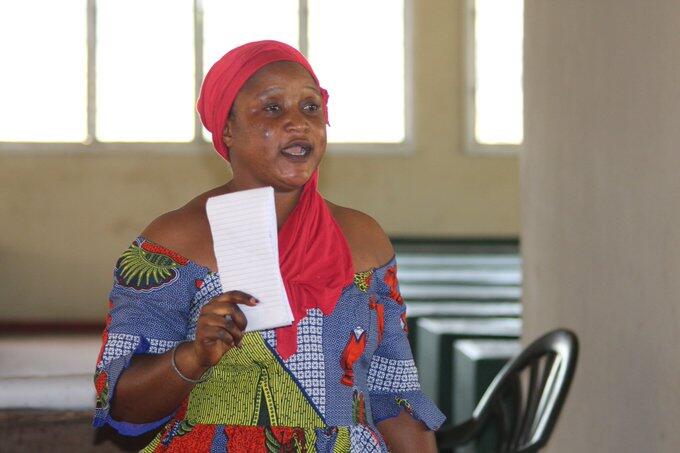“Female Genital Mutilation is detrimental to the health of women and girls.” - Lamin Jallow, GAMCOTRAP
After over three decades of the campaign to end Female Genital Mutilation (FGM) in The Gambia, the practice was criminalised in The Gambia in 2015. However, it is evident that the practice still continues to be carried out in various communities in the country and the URR is no exception. Recent studies have also shown that the region records some of the highest numbers of maternal death cases in the country. As such, supporting efforts to end FGM, is a key part of UNFPA’s work.
Ensuring that all stakeholders are actively involved in the campaign to end all forms of violence against women and girls, is key to its successful realisation. Recognising this fact, with support from UNFPA The Gambia, the Gambia Committee on Traditional Practices (GAMCOTRAP), on Friday 15 November 2019, trained one hundred (100) teachers from the Diabugu Batapa and Nyakoi Talibatu communities if the Upper River Region (URR), on FGM. The training is part of continuous efforts aimed at accelerating the abandonment of FGM and other harmful traditional practices affecting women and girls, in the URR and The Gambia at large.
Speaking at the event, the GAMCOTRAP regional coordinator for URR, Ms. Bojang, shared the numerous health complications caused by FGM, which include severe pain during birth, urinary retention and even death is some cases. “Many women are walking around with severe complications caused by the practice they cannot share with anyone due to our taboos and the culture of silence.” Ms. Bojang.
Following the activity, Foday Camara a participant, recommended that perpetrators of harmful traditional practices be held accountable and punished. According to him, this will serve as an example to everyone to abide by the laws. He stressed that,
“the culture of negotiating with perpetrators of harmful practices at family and community levels, is the main factor undermining the fight against FGM.”


